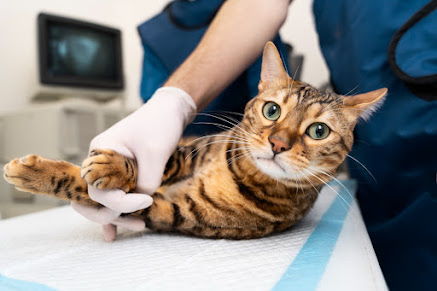Is Your Cat's Diarrhea a Sign of Something Serious?
Cats are popular pets known for their independence, elegance, and mysterious charm. However, just like any other living creature, they can experience health issues, including gastrointestinal problems like diarrhea. Cat diarrhea can be alarming for pet owners, but understanding its causes, treatment options, and preventive measures can help maintain your feline companion's well-being. In this article, we will explore the various aspects of cat diarrhea and provide valuable insights into managing this common condition.
I. Understanding Cat Diarrhea: Diarrhea refers to the passing of loose or liquid stools frequently. In cats, it is often an indication of an underlying health problem affecting their digestive system. Diarrhea can be acute, lasting for a short duration, or chronic, persisting for an extended period. It is essential to monitor your cat's stool consistency and seek veterinary attention if the condition persists or worsens.
II. Common Causes of Cat Diarrhea:
- Dietary Changes: Abrupt changes in a cat's diet, including introducing new food or treats, can lead to an upset stomach and diarrhea.
- Food Intolerances and Allergies: Cats can develop sensitivities or allergies to certain ingredients in their diet, such as lactose or specific proteins, resulting in diarrhea.
- Infections: Bacterial, viral, or parasitic infections, including Giardia, Salmonella, or feline panleukopenia virus, can cause diarrhea in cats.
- Intestinal Parasites: Common parasites like roundworms, hookworms, or coccidia can lead to diarrhea, especially in kittens.
- Medications and Toxins: Some medications, such as antibiotics, or exposure to toxic substances like plants, chemicals, or certain human foods can trigger diarrhea in cats.
- Stress and Anxiety: Cats are sensitive creatures, and stressful situations, such as changes in their environment, new additions to the household, or veterinary visits, can result in diarrhea.
- Underlying Medical Conditions: Diarrhea can also be a symptom of more severe conditions like pancreatitis, inflammatory bowel disease (IBD), hyperthyroidism, or cancer.
III. Treatment Options: When your cat experiences diarrhea, it is crucial to consult a veterinarian for an accurate diagnosis and appropriate treatment. The vet may perform a physical examination, conduct diagnostic tests, and review the cat's medical history to determine the underlying cause. Treatment options may include:
- Fluid Therapy: To combat dehydration, the veterinarian may administer fluids to restore the cat's hydration levels.
- Dietary Changes: Switching to a bland diet or a prescription diet recommended by the vet can help alleviate diarrhea symptoms.
- Medications: In certain cases, medications such as anti-diarrheals, antibiotics, or deworming medications may be prescribed.
- Addressing Underlying Conditions: If an underlying medical condition is discovered, specific treatments targeting that condition will be recommended.
IV. Preventive Measures:
- Gradual Dietary Changes: When introducing new food or making dietary adjustments, do so gradually to allow your cat's digestive system to adapt.
- Quality Diet: Feed your cat a balanced, high-quality diet appropriate for their age, breed, and health status.
- Hygiene and Cleanliness: Regularly clean your cat's litter box and food/water bowls to minimize exposure to harmful bacteria or parasites.
- Parasite Control: Implement a regular deworming program and use appropriate flea control products to prevent infestations.
- Stress Reduction: Create a calm and stable environment for your cat, minimizing sudden changes and providing ample opportunities for mental stimulation.
- Supervision and Pet-Proofing: Ensure that your cat does not have access to toxic substances, including household cleaning products and certain human foods.
Conclusion: Cat diarrhea can be a distressing experience for both the cat and its owner. Understanding the potential causes, seeking veterinary care promptly, and implementing preventive measures can help minimize the occurrence of diarrhea in cats. Remember, each cat is unique, and what works for one may not work for another, so professional guidance is vital to ensure the health and well-being of your feline companion. By providing appropriate care, attention, and a nourishing environment, you can help your cat lead a healthy and happy life, free from the discomfort of diarrhea.






